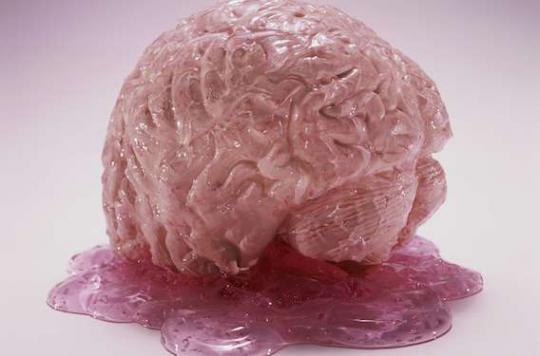Your diet has more of an impact than you think. It is closely linked to brain health, as shown by the work of a team from Bordeaux.

Memory loss, depression, anxiety. All these disorders could be linked by the same factor: diet. The track may seem surprising, but it is being studied by around sixty people from the National Institute for Agronomy Research (Inra) in Bordeaux (Gironde). At their head, Sophie Layé, neurobiologist. This December 8, she receives the Scientific Challenge Prize awarded to her Nutrineuro unit on the occasion of the 10e Ceremonial Laurels from INRA.
The key role of omega 3s
Sophie Layé’s work on the links between nutrition and the brain began in 2003. The INRA laboratory, where she now works, was founded in 2010 at the University of Bordeaux. It brings together specialists in nutrition and neurosciences. “Combining skills in both fields allows us to conduct experimental research”, summarizes Sophie Layé. And in 5 years, work on humans and animals – what is called translational research – has progressed well.
“Nutrition is complex in humans,” explains Sophie Layé. In animals, it can be modeled, studying the brain processes and mechanisms influenced by nutritional intake. Then, we establish the proof of concept in humans. The research carried out in Bordeaux also concerns the alterations observed in certain cerebral pathologies and the possible links with food.
Sophie Layé, research director at INRA: ” We know that there are links between the emergence of certain brain pathologies and the levels of omega 3 consumed. “
Food inflammation
The fields of research are quite broad: brain inflammation, depression, spatial memory. So many characteristics where polyunsaturated fatty acids play a role. In mice, obesity induced by a fatty diet, for example, promotes anxiety and impairs cognition. And this link is not a coincidence. “Omega 3s control brain plasticity, and therefore the way neurons connect. The levels of omega 3 consumed influence the levels of omega 3 incorporated into neurons, explains Sophie Layé. They will be the source of other lipids that control synaptic plasticity. “
These lipids act on the endo-cannabinoid system, which regulates communication between neurons. A deficiency in omega 3 is therefore at the origin of disturbances in this control, which causes behavioral disorders, similar to depression in humans. Research has also shown that people with diabetes are at greater risk for depression than others – inflammation playing a major role.
Sophie Layé : ” Brain inflammation is a common factor in neurodegenerative pathologies and depression. Nutritional intake of omega 3s controls it. “
The last line of work of the Bordeaux team is not lacking in ambition: the microbiota. But it makes sense in that the gut is often described as our second brain. “The recent discoveries open up a wide range of research that can be done on the link between nutrition and the brain, and open up new avenues on the management of certain pathologies,” recognizes Sophie Layé. Considering the microbiota as the interface between food and the brain is important. But it can also be an interface between drugs and the brain. “
.
















